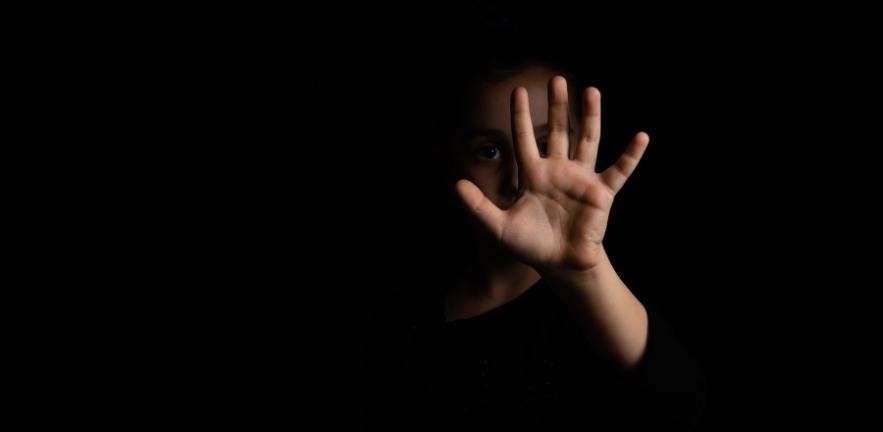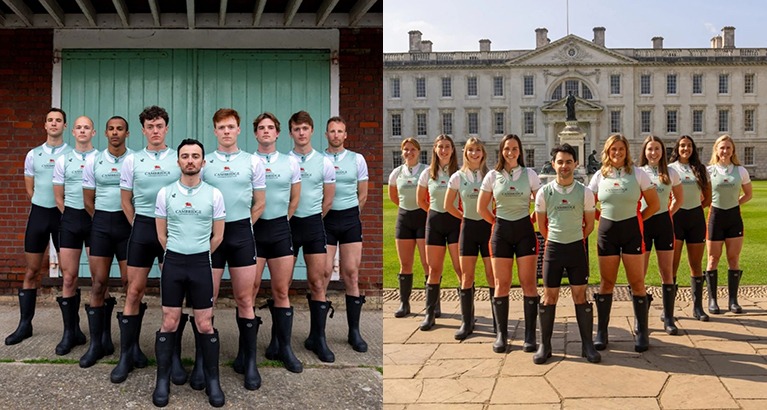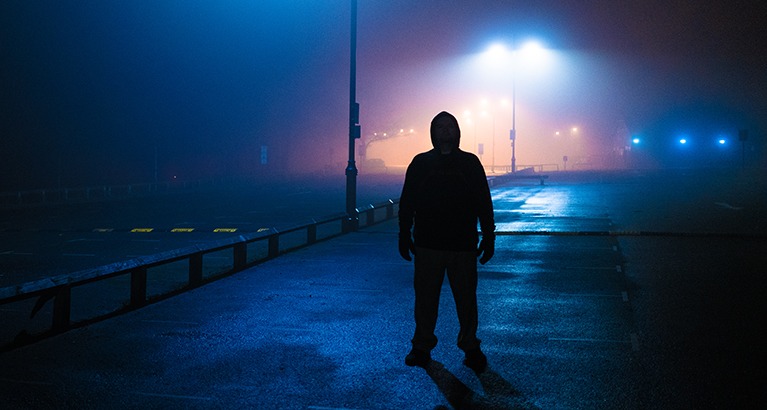Novel study in the Academy of Management Journal offers law enforcement an embedded view of the practice of ‘hunting’ paedophiles – which also has implications for other controversial closed communities enabled by social media.
“That’s him, sure of it”, said Jane on a chilly early spring Saturday as a man named Gordon drove up to a roadside restaurant to, he assumed, meet someone for casual sex. Little did he know that she was a decoy and member of a paedophile hunting team that Gordon had been speaking to online, thinking he was grooming a 12-year-old girl.
The team that arranged this sting confronted the man with a half-inch-thick stack of computer printouts of his online grooming chats, live-streaming the confrontation for the world to see – the usual modus operandi of the paedophile-hunting team dubbed Dark Knight (like Jane and Gordon, a pseudonym).
“People lie”, Gordon told the sting team, saying he thought the “girl” he had chatted with online was age 18 – though the hunting team had logged clear evidence that she had “had been methodical, telling him 3 times early on that she was only 12.”
Disturbing details of this hunt and more are included in a study just published in the prestigious Academy of Management Journal, based on the first-hand observations of Professor Mark de Rond of Cambridge Judge Business School – who was embedded with one of the UK’s most successful paedophile hunting teams for 3 years.
Drawing on 831 pages of fieldnotes and private team chatlogs totalling 600,000 words, the study was motivated by a practical problem facing law enforcement: Why do hunters persist with such extreme practices as live-streaming stings given less harmful alternatives to keeping children safe?
Live streaming of hunts is very controversial
Live streaming is a controversial practice by which ordinary citizens expose suspected child predators in public spectacles of humiliation. At least 10 suspected predators have taken their own lives since 2017 (in the UK alone) and, as is clear from a letter sent to police by the wife of a suspected predator, stings harm innocent family members:
Horrifyingly I was told that the interview with my husband who would be named was being filmed at that very moment and being posted on certain websites on the Internet. I was totally traumatised by this, sobbing uncontrollably and unable to stand up from the shock. The cruelty of this information, the way it was delivered and the future shame and degradation that would be directed at me in the fallout from it was unbearable.
At the same time, few things are more universally abhorrent than the sexual abuse and exploitation of children. Many will recoil at the thought of kids forced into circumstances that they are too young to understand yet old enough to remember. Even so, it is widespread. UK police record over 200 child sex offences every day and paedophile hunting has proved to be effective. UK teams helped secure convictions of 60 percent of all child predators brought to justice in 2018.
“Our interpretations are necessarily value-laden, critical of both the terrible child abuse we bore witness to, as well as the dehumanising practices hunters engage in, without ever wishing to suggest that these are somehow comparable,” the study says. Its findings are used by a UK taskforce including police chiefs, members of the Home Office, Crown Prosecution Service and National Crime Agency to help them better understand how to engage more effectively with hunting teams.
Professor Mark de Rond specialises in embedded research
Mark has specialised in this sort of embedded research, often related to teams in challenging circumstances. Previous studies have found him embedded with military surgeons in Afghanistan during the bloodiest summer of the recent war, world-class rowers preparing for The Oxford and Cambridge Boat Race and adventurers on the pirate-infested Amazon River.
“Embedding for a lengthy period of time enables an ethnographer to understand how circumstances shape what people do and how people orient themselves in a changing world as they find ways to make life meaningful,” says Mark.
Not only do we hope that the study's findings can help in bridging the current gap between law enforcement and the paedophile hunters, but we also think it holds implications for other closed communities enabled by social media whose desire to 'do good' can have very harmful effects.
Broader implications for examining closed online communities
The study concludes: “Hunters offer a microcosm of what we see playing out on a larger scale: the emergence of online communities whose lifeworlds are based in their authoring of villains (such as immigrants, liberal elites, big pharma) that need redeeming or removing and heroes (such as populist leaders, radical activists) who want to restore a righteous order in which the vulnerable (including the white working class and duped citizens) are protected from an insidious threat. Not only are QAnon, the boogaloo movement and the anti-vax community telling examples, so are the narratives on which Trump’s ‘Make America Great Again’ and the Brexiteers’ ‘Take Back Control’ were based.”
The study in the Academy of Management Journal – entitled “To catch a predator: the lived experience of extreme practices” – is co-authored by Mark de Rond, Professor of Organisational Ethnography at Cambridge Judge Business School, Jaco Lok, Professor of Strategy at Macquarie University in Sydney, Australia and Adrian Marrison, a PhD candidate at Cambridge Judge Business School.
It is unprecedented not only in being based on 3 years of ’embedded’ fieldwork but also in offering a novel reply to the question posed by police regarding why citizens engage in harmful practices to expose anti-social behaviours.
Specifically, the study suggests that the paedophile hunters are motivated and justify their extreme practices based on multiple ‘ways-of-being’ which includes:
- pragmatic (saving kids)
- moralistic (treating the predator as the embodiment of evil)
- narcissistic (live-streamed stings attract many viewers)
- traumatic (many hunters are believed to be abuse victims)
- heroic (an intertwining of saving kids and stamping out evil, as in “slaying the monster”)
These collective ways-of-being “orient their lived experience, help explain their persistence with extreme practices and insulate against external moral concerns and criticisms,” the authors conclude. “Our findings suggest that even if an individual person may have their own personal motives for joining a hunting team, once they become involved in its practices, their personal phenomenological history is lived through its shared world.”
A way-of-being is not the same as a particular role identity such as being a “lawyer” or “hunter,” but instead reflects a “specific understanding of self and others” at the moment of being engaged in a practice.
Listening project involving police and hunting teams
The authors hope their new approach facilitates more constructive engagement between police and hunters and they have initiated a ‘listening project’ involving the police and at least 2 hunting teams.
“It is hoped that this may go some way to help hunters begin to appreciate the impact of live streaming on (often) innocent third parties and provide mutual insight into existential differences,” the study says. “We are under no illusion that such initiatives are silver bullets. Their success will critically depend on the participants’ willingness and ability to acknowledge the validity of the other’s worldview, as well as a temporary suspension of any tendency to find early closure and clarity by simplifying meaning categories into ‘us versus them.’”
The study also carries implications wider than the issue of paedophilia and the debate over paedophile hunters, as the authors believe the findings offer a possible pathway for addressing issues posed by closed social media-enabled communities “that act out their concerns in ways that disregard our common humanity”.
“We suspect that the moral disengagement evident within the hunting community is shared” with other closed online communities, “and we know that it can enable people to inflict terrible suffering on others, paradoxically in the name of some absolute ‘good.’”
Featured research
de Rond, M., Lok, J. and Marrison, A. (2022) “To catch a predator: the lived experience of extreme practices.” Academy of Management Journal, 65(3): 870-902 (DOI: 10.5465/amj.2020.1492)
Related articles
Mark de Rond, Professor of Organisational Ethnography at Cambridge Judge Business School, was named a Runner-Up in the Cambridge Awards for Research Impact and Engagement for his insightful work on the controversial practice of paedophile hunting for which he was embedded with such practitioners over 4 years. Mark was cited in the Established Academic category of the Awards, which are among the most prestigious at the University of Cambridge.
Student and alumni news
2025 Boat Race features 3 Cambridge MBA rowers
Olympians and other championship rowers from Cambridge Judge Business School compete for the women’s and men’s University of Cambridge squads on the River Thames.
A new book about the controversial practice of paedophile hunting, authored by Mark de Rond, Professor of Organisational Ethnography at Cambridge Judge Business School, is published on 6 March by Cambridge University Press (CUP).





